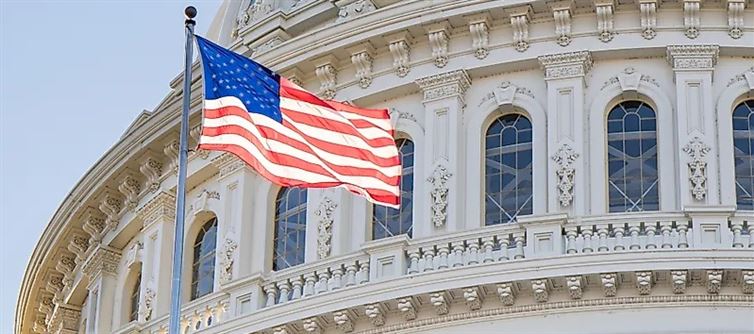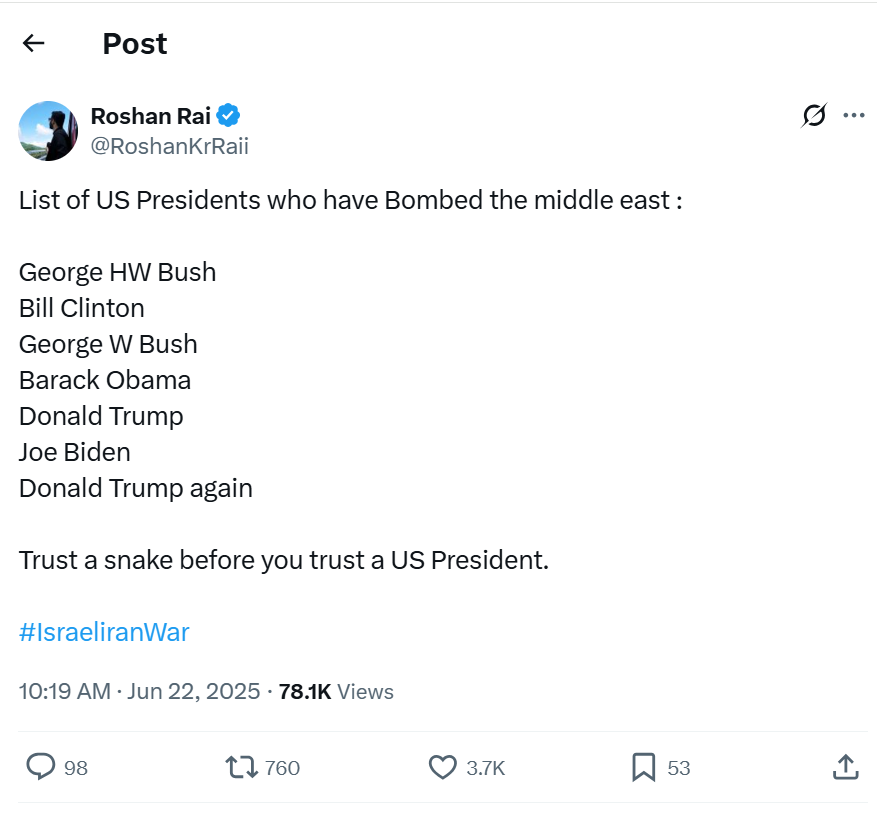
The accompanying statement, "Trust a snake before you trust a US President," reflects a strong sentiment of distrust toward U.S. leadership, implying that these military actions may be perceived as self-serving or duplicitous. This view aligns with some of the responses to the tweet, which amplify the criticism. For instance, @arunbwn remarked, "And yet they keep preaching 'freedom,' 'democracy,' and 'peace.' Turns out, bombs speak louder than values. The Middle east has been their testing ground for decades," echoing a narrative of hypocrisy in U.S. foreign policy.
 Other reactions delve deeper into the perceived motivations behind these interventions. @NrGodse01 wrote, "America took oil and gave back chaos to the entire middle east," suggesting economic interests, particularly oil, as a driving force—a perspective supported by historical analyses, such as the U.S.'s shifting focus toward Syrian oilfields during Trump's presidency, as noted in Wikipedia's entry on U.S. foreign policy in the Middle east, updated june 9, 2025. Meanwhile, @mady_tweets_ labeled the U.S. as "the real terrorist state," a sentiment that resonates with broader global critiques of American militarism.
Other reactions delve deeper into the perceived motivations behind these interventions. @NrGodse01 wrote, "America took oil and gave back chaos to the entire middle east," suggesting economic interests, particularly oil, as a driving force—a perspective supported by historical analyses, such as the U.S.'s shifting focus toward Syrian oilfields during Trump's presidency, as noted in Wikipedia's entry on U.S. foreign policy in the Middle east, updated june 9, 2025. Meanwhile, @mady_tweets_ labeled the U.S. as "the real terrorist state," a sentiment that resonates with broader global critiques of American militarism.The concept of the tweet is supported by historical information from online sources. While recent escalations, like those reported by ACLED on february 9, 2024, demonstrate a 20-fold increase in attacks on U.S. forces by resistance groups in the region, the Eisenhower Doctrine of 1957, as described on Wikipedia, marked the U.S. commitment to Middle east security, frequently through military means. The tweet's significance in light of contemporary geopolitical tensions is further framed by the continuing Israel-Iran confrontation, which was emphasized in the Atlantic Council's june 16, 2025, study.




 click and follow Indiaherald WhatsApp channel
click and follow Indiaherald WhatsApp channel